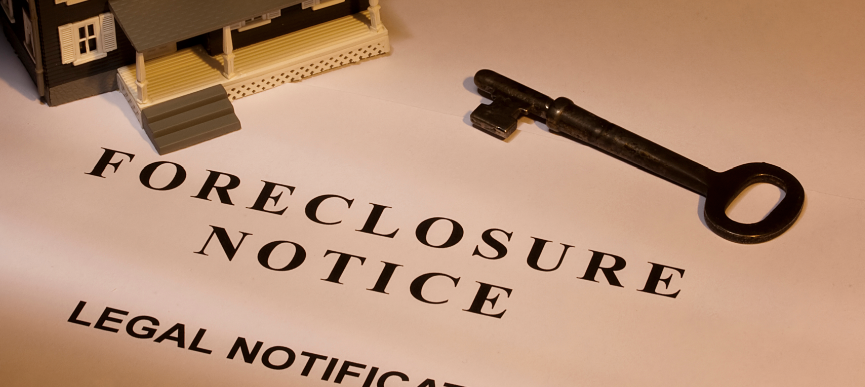
If you’ve gotten a foreclosure notice of default and want to know what the heck is going on, keep reading.
Getting a notice of default can feel like a punch to the gut. Suddenly, you’re facing legal deadlines, confusing paperwork, and real risk of losing your home. If you live in Virginia and your lender has just sent you a foreclosure notice of default, don’t panic—this blog post is your roadmap for what comes next.
Internal Resource: If you’d prefer to sell quickly and avoid foreclosure altogether, learn about our all‑cash solutions here: Sell House Fast in Virginia.
1. Foreclosure Notice of Default 101
A foreclosure notice of default is the lender’s official statement: “You’ve missed payments, we intend to foreclose unless you cure the default.” In Virginia—where most foreclosures are nonjudicial under a deed of trust—this notice triggers legally required steps:
- Mailing and Delivery: The trustee mails or delivers the notice to you and any other lienholders on record (second mortgages, mechanic’s liens, etc.).
- Public Notice: The trustee must also publish the notice in a local newspaper and post it on the property, so neighbors and other interested parties are informed.
- Cure Period: You typically have 30 days from the notice date (check your deed of trust and Virginia Code § 55.1‑321) to pay what you owe or make other arrangements.
Why It Matters: This notice exists to protect homeowners from surprise foreclosures. It gives you a clear deadline and a chance to act before an auction is scheduled.
2. Take a Deep Breath—but Act Fast
Receiving a notice can be embarrassing and stressful. You may worry about eviction, credit scores, or simply where you’ll live next. But time is your ally right now:
- Stay Calm. Anxiety leads to paralysis. A clear head helps you tackle the steps below.
- Mark Your Calendar. Note your last day to cure (often 30 days). Missing that date means moving straight toward auction.
- Gather Your Documents:
- Mortgage statements showing arrears
- Notice of default paperwork
- Proof of income and expenses
- Any past communications with the lender
- List Your Questions. What’s the exact cure amount? When is the sale date? Who is the trustee? Having these at your fingertips streamlines conversations.
3. Your 5 Options to Stop Foreclosure in Virginia
3.1 Reinstate or Catch Up
Pay the full arrears (missed payments, late fees, trustee costs) by the cure deadline. Contact the trustee or servicer right away for the exact reinstatement amount. If you have the funds, this halts foreclosure entirely.
3.2 Loan Modification or Forbearance
Many servicers offer workout programs—even on nonjudicial foreclosures:
- Modification: Adjust interest rate, extend term, or defer principal to lower monthly payments.
- Forbearance: Temporary pause or reduction in payments followed by a repayment plan.
Resource: CFPB’s guide on mortgage modifications and forbearance can help you prepare your request: https://www.consumerfinance.gov/ask-cfpb/what-is-forbearance-on-a-mortgage-en-176/
3.3 Short Sale
If your home’s market value is less than the mortgage balance, a short sale lets you sell for less than owed—with lender approval. It avoids public auction and is less damaging to credit than a foreclosure.
Tip: Work with a real estate agent experienced in Virginia short sales, or consider selling directly to an investor willing to handle the lender negotiations for you.
3.4 Deed in Lieu of Foreclosure
You voluntarily transfer title to the lender to satisfy the debt. Advantages:
- Faster resolution
- Fewer legal costs and auction publicity
Caution: The lender must agree and there should be no junior liens on the property.
3.5 Cash Sale to an Investor
Selling for cash in as little as a week can wipe out your loan, stop the foreclosure, and put money in your pocket—no repairs, no showings, no agent commissions.
Learn More: Visit our Virginia page for details on how a cash sale works: Sell House Fast in Virginia
4. How to Negotiate with Your Lender
Prepare Your Hardship Package
- A clear hardship letter explaining why you fell behind (job loss, medical bills, etc.)
- Recent pay stubs, bank statements, tax returns
- A household budget showing income and expenses
Speak Their Language
Contact the loan servicer’s loss mitigation department (not collections) and request a workout. Be polite, professional, and persistent. Keep notes on every call: date, name, summary.
Get Everything in Writing
Verbal promises can evaporate. Insist on written confirmation of any agreement—modification terms, forbearance details, or payment plans.
5. Tap Into Free and Low‑Cost Help
You don’t have to navigate this alone. In Virginia:
- HUD‑Approved Housing Counselors offer free foreclosure avoidance advice. Find one here: https://apps.hud.gov/offices/hsg/sfh/hcc/hcs.cfm?webListAction=search&searchstate=VA
- Virginia Housing Commission may have emergency mortgage assistance programs. Check: https://www.virginiahousing.com
- Legal Aid: Low‑income homeowners can get free legal help through Legal Aid Works
Avoid “foreclosure rescue” companies that charge big upfront fees—true counselors are HUD‑approved and free or low‑cost.
6. Plan for What Comes Next—Even if You Stay
If you reinstated your loan or secured a modification, congrats—but don’t assume the worst is over:
- Budget Carefully: Stick to your new payment schedule.
- Build an Emergency Fund: Aim for 3–6 months of expenses to handle future hiccups.
- Monitor Your Credit: Sign up for free alerts and check reports at annualcreditreport.com.
If you’re selling (short sale, deed in lieu, cash sale),:
- Secure Temporary Housing: Rental, family, or rent‑back agreement with the buyer.
- Plan Your Move: Avoid last‑minute scrambles.
- Rebuild Credit: Pay all other bills on time; consider a secured credit card to reestablish credit.
7. Frequently Asked Questions
Q: How long do I have to cure the default in Virginia?
A: Typically 30 days from the notice of default, but your deed of trust or notice may specify a slightly different period. Confirm the exact date on the notice.
Q: Can I contest a nonjudicial foreclosure?
A: It’s harder than a judicial process, but if the trustee failed to follow notice requirements under Virginia Code § 55.1‑321, you may have defenses. Consult an attorney immediately.
Q: Will a foreclosure notice affect my credit instantly?
A: The notice itself doesn’t appear on credit reports, but late payments and default will. A completed foreclosure will have a major negative impact.
Q: What if my loan isn’t backed by Fannie Mae, Freddie Mac, FHA, or VA?
A: Many servicers still offer proprietary modification programs. Early contact and documentation remain key.
Your Move: Decide and Act
A notice of default doesn’t mean all hope is lost. You have real options—reinstatement, modification, short sale, deed in lieu, or a fast cash sale. The right path depends on your financial picture, timeline, and tolerance for risk.
If you need a guaranteed, no‑hassle cash offer on your Virginia home, reach out today: Sell House Fast in Virginia.
Keep calm, get informed, and take charge of your next steps. You’ve got this.
— The Simple Homebuyers Team

